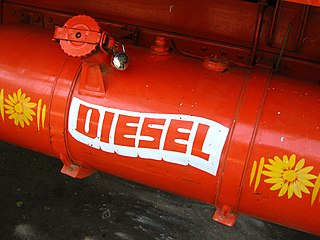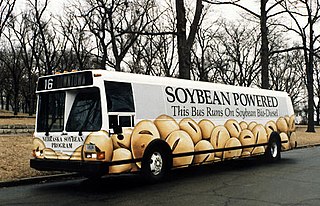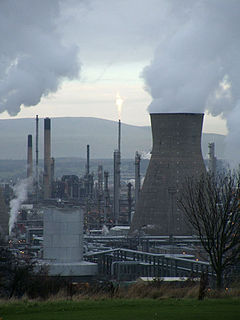Kerosene, also known as paraffin, lamp oil, and coal oil, is a combustible hydrocarbon liquid which is derived from petroleum. It is widely used as a fuel in industry as well as households. Its name derives from Greek: κηρός (keros) meaning wax, and was registered as a trademark by Canadian geologist and inventor Abraham Gesner in 1854 before evolving into a genericized trademark. It is sometimes spelled kerosine in scientific and industrial usage. The term kerosene is common in much of Argentina, Australia, Canada, India, New Zealand, and the United States, while the term paraffin is used in Chile, eastern Africa, South Africa, Norway, and in the United Kingdom. The term lamp oil, or the equivalent in the local languages, is common in the majority of Asia. Liquid paraffin is a more viscous and highly refined product which is used as a laxative. Paraffin wax is a waxy solid extracted from petroleum.

Diesel fuel in general is any liquid fuel used in diesel engines, whose fuel ignition takes place, without any spark, as a result of compression of the inlet air mixture and then injection of fuel. Diesel engines have found broad use as a result of higher thermodynamic efficiency and thus fuel efficiency. This is particularly noted where diesel engines are run at part-load; as their air supply is not throttled as in a petrol engine, their efficiency still remains very high.

Biodiesel refers to a vegetable oil- or animal fat-based diesel fuel consisting of long-chain alkyl esters. Biodiesel is typically made by chemically reacting lipids with an alcohol producing fatty acid esters.

Fuel oil is a fraction obtained from petroleum distillation, either as a distillate or a residue. In general terms, fuel oil is any liquid fuel that is burned in a furnace or boiler for the generation of heat or used in an engine for the generation of power, except oils having a flash point of approximately 42 °C (108 °F) and oils burned in cotton or wool-wick burners. Fuel oil is made of long hydrocarbon chains, particularly alkanes, cycloalkanes and aromatics. The term fuel oil is also used in a stricter sense to refer only to the heaviest commercial fuel that can be obtained from crude oil, i.e., heavier than gasoline and naphtha.

Liquid fuels are combustible or energy-generating molecules that can be harnessed to create mechanical energy, usually producing kinetic energy; they also must take the shape of their container. It is the fumes of liquid fuels that are flammable instead of the fluid.
Most liquid fuels in widespread use are derived from fossil fuels; however, there are several types, such as hydrogen fuel, ethanol, and biodiesel, which are also categorized as a liquid fuel. Many liquid fuels play a primary role in transportation and the economy.

Petroleum products are materials derived from crude oil (petroleum) as it is processed in oil refineries. Unlike petrochemicals, which are a collection of well-defined usually pure chemical compounds, petroleum products are complex mixtures. The majority of petroleum is converted to petroleum products, which includes several classes of fuels.
The oil and gas industry is usually divided into three major sectors: upstream, midstream, and downstream. The downstream sector is the refining of petroleum crude oil and the processing and purifying of raw natural gas, as well as the marketing and distribution of products derived from crude oil and natural gas. The downstream sector reaches consumers through products such as gasoline or petrol, kerosene, jet fuel, diesel oil, heating oil, fuel oils, lubricants, waxes, asphalt, natural gas, and liquefied petroleum gas (LPG) as well as hundreds of petrochemicals.

A fuel filter is a filter in the fuel line that screens out dirt and rust particles from the fuel, normally made into cartridges containing a filter paper. They are found in most internal combustion engines.

A diesel particulate filter (DPF) is a device designed to remove diesel particulate matter or soot from the exhaust gas of a diesel engine.
Higher alkanes are alkanes having nine or more carbon atoms. Nonane is the lightest alkane to have a flash point above 25 °C, and is not classified as dangerously flammable.

The PSA XUD is a Diesel engine designed and built by PSA - Peugeot and Citroën. It is an Indirect injection (IDI) engine, that uses a version of the Ricardo Consulting Engineers Ricardo Comet V prechamber cylinder head design. The engine comes in 1.8 L (1,769 cc) N/A, 1.8 Turbo, 1.9 L (1,905 cc) N/A, Turbo, 2.1 12 valve N/A and Turbo and was the predecessor to the HDI range of engines. Early HDi Engines were a PSA design, later 16 valve engines were jointly developed with Ford.
Vegetable oil can be used as an alternative fuel in diesel engines and in heating oil burners. When vegetable oil is used directly as a fuel, in either modified or unmodified equipment, it is referred to as straight vegetable oil (SVO) or pure plant oil (PPO). Conventional diesel engines can be modified to help ensure that the viscosity of the vegetable oil is low enough to allow proper atomization of the fuel. This prevents incomplete combustion, which would damage the engine by causing a build-up of carbon. Straight vegetable oil can also be blended with conventional diesel or processed into biodiesel or bioliquids for use under a wider range of conditions.
An oil is any nonpolar chemical substance that is a viscous liquid at ambient temperatures and is both hydrophobic and lipophilic. Oils have a high carbon and hydrogen content and are usually flammable and surface active.
Neste Renewable Diesel is a renewable diesel fuel production process commercialized by the Finnish oil and refining company Neste. Whether as an admixture or in its pure form, Neste Renewable Diesel is able to supplement or partially replace diesel fuel without problems. Unblended Neste Renewable Diesel meets the requirements set by the European pre-standard CEN TS 15940. Fuel blends meet the European diesel fuel standard EN 590.

An oil burner is a heating device which burns #1, #2 and #6 heating oils, diesel fuel or other similar fuels. In the United States ultra low #2 diesel is the common fuel used. It is dyed red to show that it is road-tax exempt. In most markets of the United States heating oil is the same specification of fuel as on-road un-dyed diesel.
Coal-water slurry fuel is a combustible mixture of fine coal particles suspended in water. It can be used to power boilers, gas turbines, diesel engines and heating and power stations.
Emulsified Fuels are emulsions composed of water and a combustible liquid, either oil or a fuel. Emulsions are a particular example of a dispersion comprising a continuous and a dispersed phase. In the case of emulsions both phases are the immiscible liquids, oil and water. Emulsion fuels can be either a microemulsion or an ordinary emulsion. The essential differences between the two are stability and particle size distribution. Microemulsions are isotropic whereas macroemulsions are prone to settling and changes in particle size over time. Both use surfactants and can be either water-in-oil, or oil-in-water or bicontinuous.

National Refinery Limited is a Pakistani oil refinery based in Karachi, Sindh, Pakistan.

Winter diesel fuel refers to diesel fuel enhanced to prevent it from gelling in cold weather conditions. In general it is achieved by treatment with additives that change the low temperature characteristics of the fuel.













